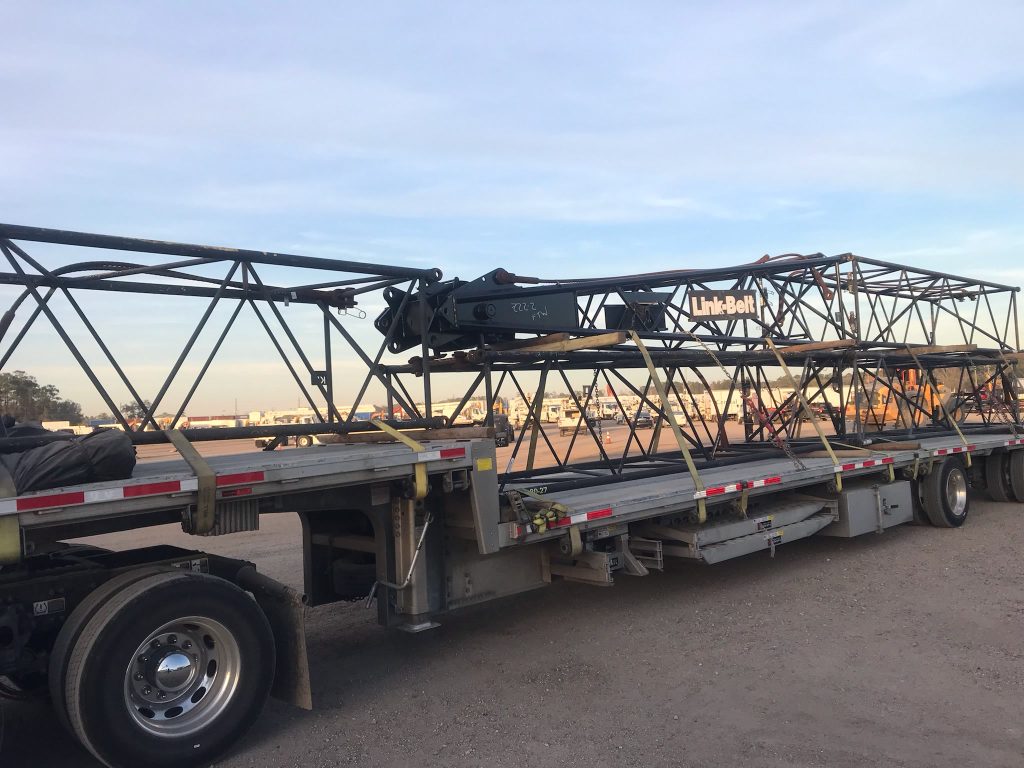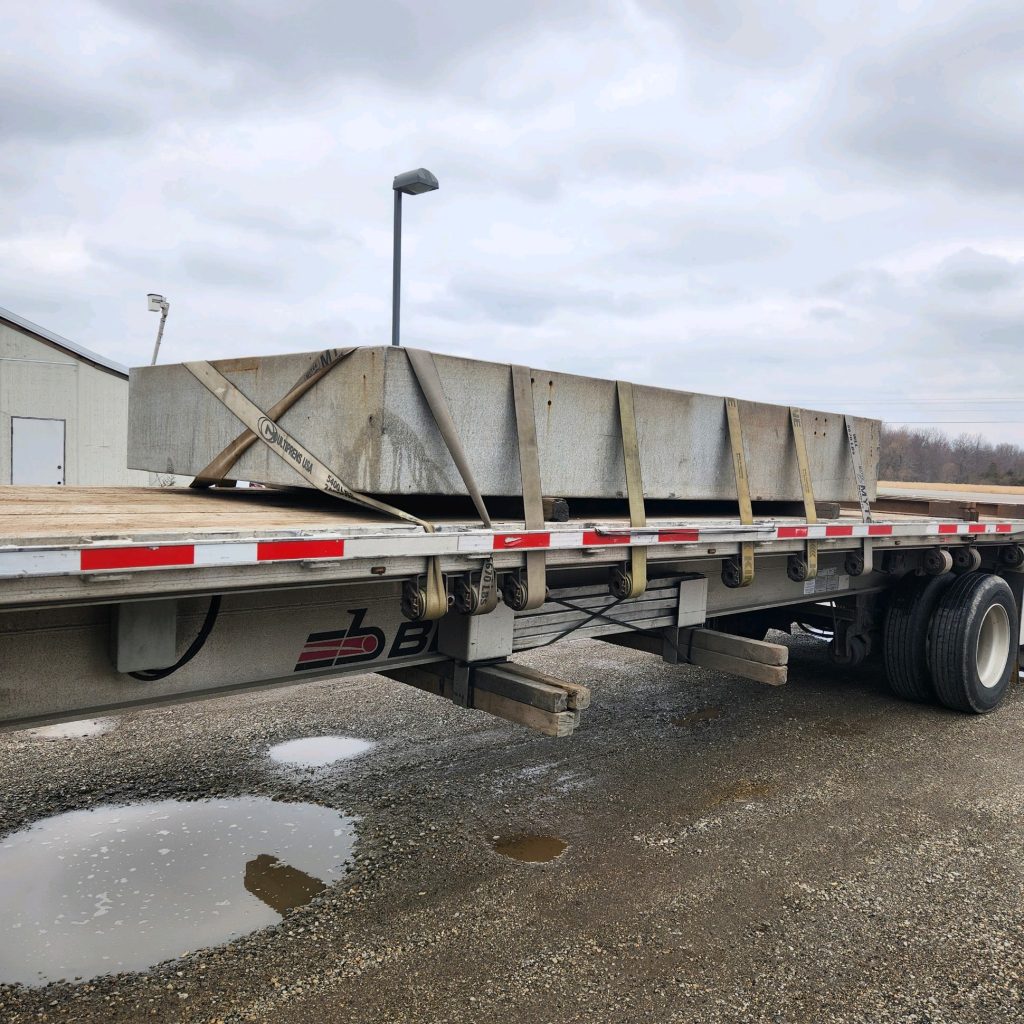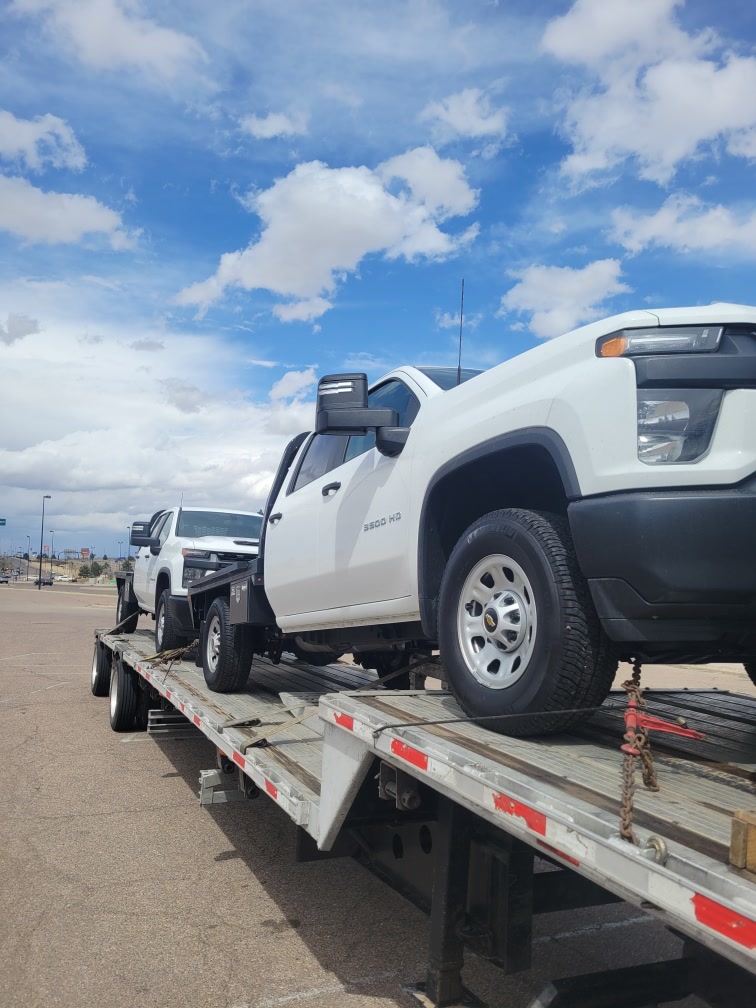Step Deck Weight Limits
Freedom Heavy Haul can offer expedited Pickup and Delivery for any size shipment anywhere in the USA. Contact us today for No Hassle, No Pressure Pricing.
Transporting goods efficiently and safely is crucial in the logistics industry, and step deck trailers play a vital role in this process. These trailers are designed to carry heavy and oversized loads, making understanding their weight limits and related regulations essential for operators. This guide provides an in-depth look into the world of step deck trailers, covering everything from step deck weight limits to regulatory compliance.
Step Deck Weight Limits: The Maximum Weight Capacity
Step deck trailers, also known as drop deck trailers, are specially designed to transport tall and heavy cargo that cannot be carried by standard flatbed trailers due to height restrictions on roads. The key advantage of a step deck trailer is its ability to haul taller loads, thanks to its lowered deck.

The maximum weight capacity of a step deck trailer typically around 48,000 pounds, depending on the trailer’s construction and the laws of the states through which it travels. It’s crucial for operators to be aware of these limits to avoid overloading, which can lead to safety risks and legal complications.
Typical Cargo for Step Deck Transportation
Step deck trailers are versatile in their use, commonly transporting items such as construction equipment, large vehicles, industrial machinery, and oversized building materials. Their design allows for the accommodation of taller items, making them the go-to choice for cargoes that exceed the height limits of standard flatbeds. The diversity of cargo that can be transported on step decks underscores the importance of understanding specific weight and dimension limits for each load type.
Detailed Dimensions and Weight Regulations for Step Deck Trailers
Understanding the legal dimensions and weight regulations for step deck trailers is fundamental in ensuring safe and lawful transportation. These limits can vary based on state and federal laws, and staying compliant is crucial for smooth operations.

Standard Measurements of Step Deck Trailers
The standard step deck trailer comes in various lengths and widths, with the most common being 48 to 53 feet in length and about 8.5 feet in width. The height of the lower deck typically ranges from 38 to 42 inches from the ground, providing additional clearance for tall cargo. Knowing these dimensions is essential for planning and loading cargo efficiently.
Legal Maximum Load Length on Step Decks
The maximum legal load length for a step deck trailer usually aligns with that of flatbeds, primarily around 53 feet. However, this can vary depending on state regulations, and it’s crucial to check specific state laws, especially when hauling across state lines.
Width Regulations for Step Deck Hauling
The legal width limit for step deck trailers is generally 8.5 feet. Loads exceeding this width may require special permits and are often classified as oversized. Operators must ensure they adhere to these regulations to avoid penalties.
Height Restrictions for Step Deck Cargo
The maximum height of cargo on a step deck trailer is typically around 10 to 11 feet, considering the lower deck height. This limit is in place to ensure safe passage under bridges and overpasses. Exceeding this height can lead to severe safety hazards and legal issues.
Oversize and Overweight Loads: Definitions and Implications
Carrying oversize or overweight loads on step deck trailers involves adhering to specific regulations and often requires obtaining special permits. Understanding what constitutes such loads is key to compliance and safe transportation.

Criteria for Overweight Loads in Step Deck Trailers
An overweight load on a step deck trailer is one that exceeds the maximum allowable weight, which is typically around 48,000 pounds. Weight limits are enforced to prevent damage to roadways and ensure safety. Overweight loads often require special permits and can lead to increased scrutiny from regulatory authorities.
Distinguishing Oversize Loads in Step Deck Hauling
An oversize load is one that exceeds the standard dimensions of length, width, or height. Such loads require careful planning, as they often necessitate route planning to avoid low bridges and narrow roads, along with special permits. Additionally, oversize loads may require escort vehicles for safe transport.
Guidelines for Safe and Compliant Loading on Step Decks
Proper loading techniques are crucial for maintaining the integrity of the cargo and the safety of the transport. Adherence to weight distribution and securement regulations is non-negotiable.
Strategies for Efficient Load Distribution on Step Decks
Effective load distribution is critical to maintaining balance and stability during transport. Loads should be evenly distributed across the deck to prevent overloading on any axle and to maintain vehicle control. Improper load distribution can lead to accidents and cargo damage.
Impact of Improper Loading on Step Deck Trailers
Improper loading can lead to a range of issues, from uneven wear and tear on the trailer to increased risk of accidents. Ensuring that cargo is properly secured and balanced is paramount for the safety of the transport crew and other road users.
Regulatory Compliance for Step Deck Trailers
Staying compliant with state and federal regulations is essential for legal and safe operation of step deck trailers. This includes understanding weight limits, dimension restrictions, and permit requirements.
Navigating State and Federal Regulations for Step Deck Hauling
Each state may have its own set of regulations for step deck trailers, and it’s crucial for operators to be familiar with these, especially when crossing state lines. Federal regulations also play a significant role, particularly concerning interstate transport.
Permit Requirements for Oversize and Overweight Step Deck Loads
Obtaining the correct permits for oversize or overweight loads is a critical aspect of step deck transportation. Failure to secure the necessary permits can result in fines, legal complications, and transport delays. It’s important for operators to be well-versed in the permit application process and requirements.







